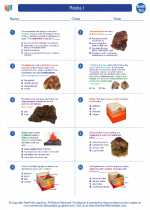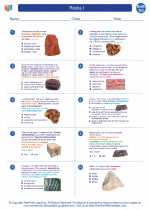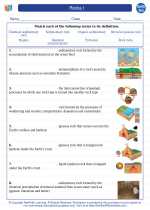Decomposition
Decomposition is the process by which organic matter is broken down into simpler substances by the action of microorganisms such as bacteria, fungi, and other decomposers. This natural process is essential for the recycling of nutrients and the maintenance of ecosystem balance.
Factors Affecting Decomposition
Several factors can influence the rate of decomposition:
- Temperature: Warmer temperatures generally increase the rate of decomposition, as microorganisms are more active in higher temperatures.
- Moisture: Adequate moisture is necessary for decomposition to occur, as it helps microorganisms thrive and break down organic matter.
- Oxygen: Aerobic decomposition, which requires oxygen, is typically faster than anaerobic decomposition.
- Organic Matter Quality: The chemical composition of organic matter, such as its carbon-to-nitrogen ratio, can affect decomposition rates.
- Microorganism Activity: The presence and activity of decomposing organisms influence the speed and efficiency of decomposition.
Stages of Decomposition
Decomposition occurs in several stages:
- Fresh: Fresh organic matter is rich in nutrients and provides an initial food source for decomposers.
- Breakdown: Microorganisms break down complex organic compounds into simpler substances through enzymatic processes.
- Humus Formation: Over time, the remaining organic material is transformed into humus, a stable, organic-rich substance that enriches soil.
Importance of Decomposition
Decomposition plays a crucial role in the functioning of ecosystems and has several key benefits:
- Recycling of nutrients, such as carbon, nitrogen, and phosphorus, back into the soil.
- Enriching soil fertility and structure through the production of humus.
- Supporting plant growth and productivity by providing essential nutrients.
- Contributing to the carbon cycle by releasing carbon dioxide during decomposition.
- Facilitating the breakdown of organic waste and detritus, which helps to maintain ecosystem cleanliness.
Human Impacts
Human activities can influence decomposition processes, both positively and negatively. For example, composting organic waste can enhance decomposition and soil fertility, while pollution and habitat destruction can disrupt natural decomposition cycles.
Study Guide
To study decomposition effectively, consider the following key points:
- Understand the biological and chemical processes involved in decomposition.
- Learn about the role of microorganisms and decomposers in breaking down organic matter.
- Explore the environmental factors that influence the rate of decomposition.
- Examine the importance of decomposition in nutrient cycling and soil health.
- Consider the human impacts on decomposition processes and ecosystem sustainability.
By mastering these concepts, you can gain a comprehensive understanding of decomposition and its significance in ecological systems.
.◂Earth Science Worksheets and Study Guides High School. Rocks I

 Worksheet/Answer key
Worksheet/Answer key
 Worksheet/Answer key
Worksheet/Answer key
 Vocabulary/Answer key
Vocabulary/Answer key
 Vocabulary/Answer key
Vocabulary/Answer key
 Vocabulary/Answer key
Vocabulary/Answer key
